Weaning: What Worked, What Hurt, and What Helped Me Hold the Line
I didn’t stop nursing because I was totally ready. I stopped because I needed to—for my body, for my mind, and for our family rhythm to shift into something more sustainable. I was depleted in ways I couldn’t name. I was beginning to feel touched out, like I couldn’t access my own needs underneath the constant call of hers. Still, I knew that weaning would break both our hearts a little—and it did.
I first made the very conscious decision that once I chose to stop, I wouldn’t give in. That was the harder part—not the boundary itself, but staying inside it. I knew I’d have to hold a line I didn’t want to hold, one I could be easily swayed to bend. But I had to be the adult, the parent—her parent. And I knew the older she got, the harder it would be to stick to it, because I just want to give her everything that makes her happy. I hate seeing her upset.
What Worked
Covering my nipples with pasties or bandaids that she couldn’t get off. This was paramount. In her eyes, the nipples didn’t exist anymore. The skin—the chest, the soft place to land—was still there. She cried on me, touched me, sought comfort in that space. But nursing was no longer an option.
I gave her space to be upset when they didn’t “work” anymore. I didn’t distract her immediately. I let her have her feelings. And then, after a few minutes, I’d gently redirect her.
I offered other options—often. Not just in the heat of the meltdown, but all throughout the day. Babies don’t just need comfort when they’re upset—they need it baked into their routine. They’re like tiny habit machines with zero impulse control and no chill.
So I built new habits:
• Popsicles, pouches, cups with straws that required some effort
• Freeze-dried fruit, melties, and whatever else lit her up
• A steady rotation of soothing go-tos before things got emotional
This wasn’t distraction—it was a swap. And for it to work, I had to be consistent. She wasn’t going to forget the comfort of nursing unless I gave her a dozen other things to reach for instead.
I resourced myself during the times I knew would be harder—especially after she woke up. I did deep breathing. Power poses. I stared at myself in the mirror and imagined my heart being strong for both of us. It sounds a little cheesy now, but it anchored me in those early mornings when she cried and reached and I had to stay firm.
I asked for support, over and over. I had my wife tell me often that I was doing the right thing. That she supported me. That I could do it. I didn’t believe it at first. But hearing it from people I trusted, on repeat, helped me hold the line. Eventually, I started to believe it myself. And then I started to see it work.
What Was Harder Than I Expected
I expected to miss the closeness. I didn’t expect the ache to feel so physical. My arms would tingle. My chest hurt. I held her, and still missed her. I missed the rhythm. The way we both softened into the act. The way it shut the world out and brought us together.
I didn’t expect to second-guess myself every single time she cried.
I didn’t expect to feel like I was betraying her. Or like I was rushing something sacred.
Weaning wasn’t just a transition for her—it was grief for me. A slow untangling. But the closeness didn’t vanish. It changed. She started wrapping her arms tighter around my neck. Laying her head on my chest. Her love didn’t disappear—it just found new ways to live.
If You’re In It Right Now (and Everything Feels Like It Sucks
If you’re in the thick of it—your kid’s crying, your brain’s fried, and you’re second-guessing every choice you make—this part’s for you.
You’re not doing it wrong. You’re doing something hard.
So what now?
• Lock eyes with yourself in the mirror and say, “You’ve got this.” Out loud. Say it until you believe it.
• Blast music while you make snacks or walk laps around your kitchen. Create movement. Rhythm. Power.
• Keep snacks and tools stocked like a survival kit. Your kid’s new habits need fuel—and so do yours.
• Repeat the truth: this is love in action. Even when it feels like a total mess.
You are not alone. You are not broken. And you’re not ruining your baby. You’re just moving forward—together, one tiny messy moment at a time.
Share Your Weaning Story
Every baby is different. Every parent has a version of this tender, impossible moment. If you’ve weaned—or you’re in it right now—I’d love to hear your story. What helped you hold the line? What broke you open?
Drop your thoughts in the comments or message me privately. Let’s stop pretending this part isn’t brutal and brave.
About the Author
Nicolette Ferrell, I’m a full-time parent, childbirth educator, and writer who believes in telling the truth about the messy middle of motherhood. I live in Oregon with my wife and our daughter, who keeps teaching me that every ending makes room for something new.









